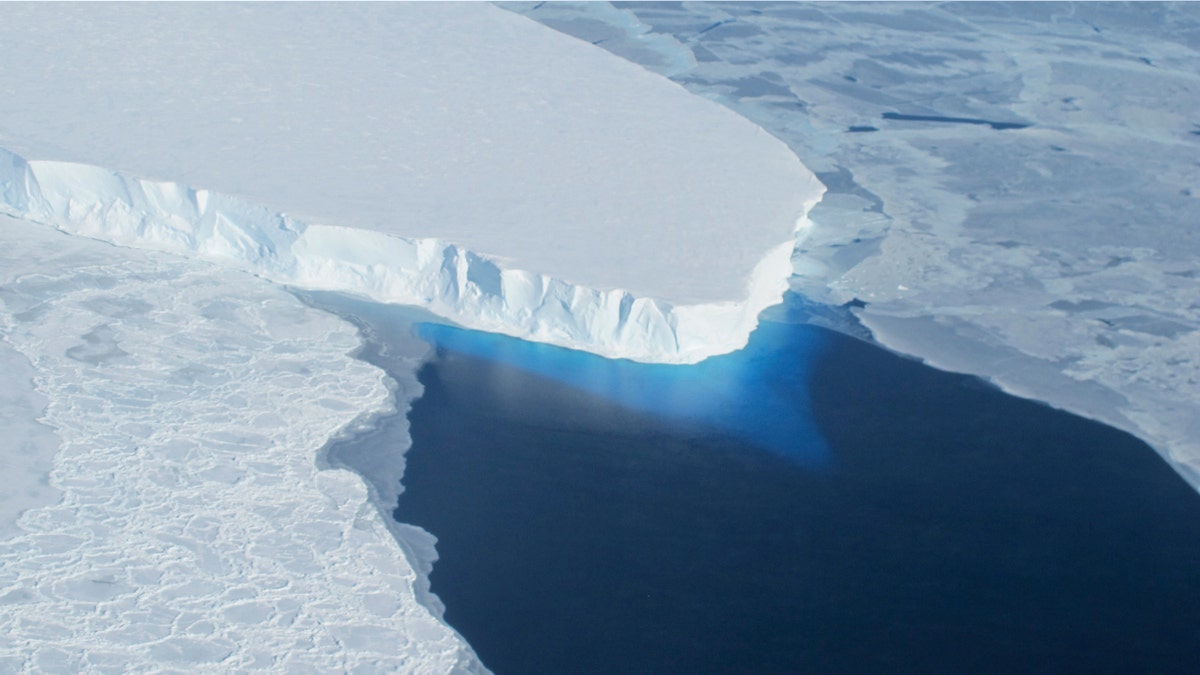
The Thwaites Glacier in Antarctica is seen in this undated NASA image. (REUTERS/NASA/Handout via Reuters)
Scientists are warning that the West Antarctic ice sheet could collapse, potentially causing sea levels to rise more than 49 feet by 2500.
The study published in the journal Nature this week, cites the impact of greenhouse gas emissions over the coming decades. Collapsing Antarctic ice could cause sea levels to rise more than 3 feet by 2100, say co-authors Rob DeConto, a geoscientist at the University of Massachusetts Amherst and David Pollard, a palaeoclimatologist at Pennsylvania State University in University Park.
If emissions continue unabated, the scientists warn, atmospheric warming will soon become a “dominant driver” of ice loss, with prolonged ocean warming delaying its recovery for thousands of years.
Related: Great Barrier Reef hit by widespread coral bleaching
The research uses a model that combines ice sheet and climate dynamics, as well as processes that link atmospheric warming with “hydrofracturing of buttressing ice shelves and structural collapse of marine-terminating ice cliffs,” according to the authors. These processes were measured against sea-level estimates from the Pliocene and Last Interglacial periods and applied to future greenhouse gas emission scenarios.
In one of the scientists' simulations, the West Antarctic ice sheet could collapse within 250 years.
The study is the latest warning about the stability of Antarctic ice. Researchers have already blamed rising seas on melting ice sheets in Greenland and West Antarctica, triggered by the rise in heat-trapping, greenhouse gas emissions.
However, DeConto told Nature that his model projects little or no sea-level rise from melting Antarctic ice if emissions are cut quickly enough to limit the average global temperature to 3.6 degrees (2 degrees Celsius).
Related: Yale's climate change program out of gas
Skeptics have largely dismissed fears over man’s impact on global warming, saying climate change has been going on since the beginning of time. They also claim the dangers of a warming planet are being wildly exaggerated and question the impact that fossil fuels have had on climate change.








































